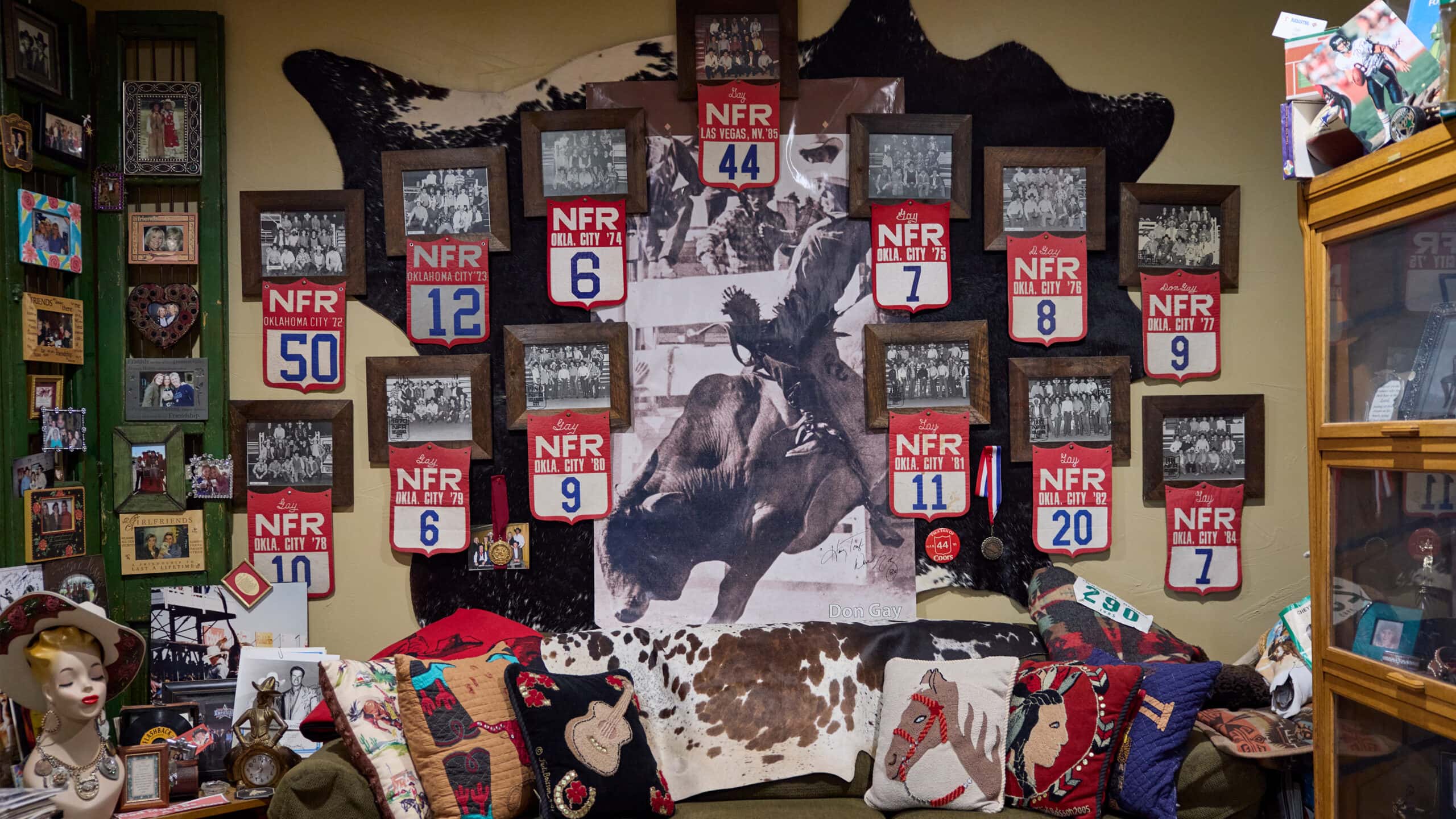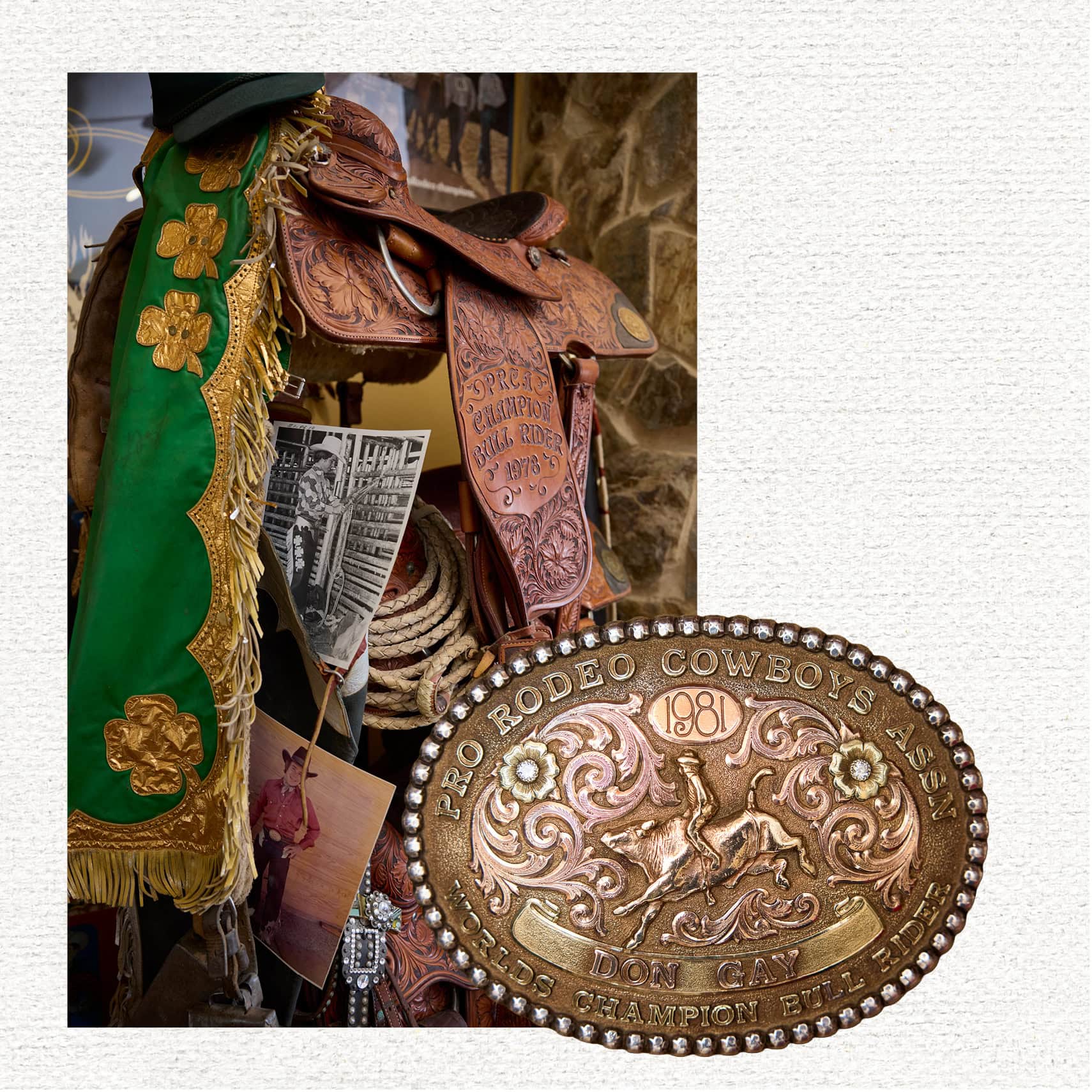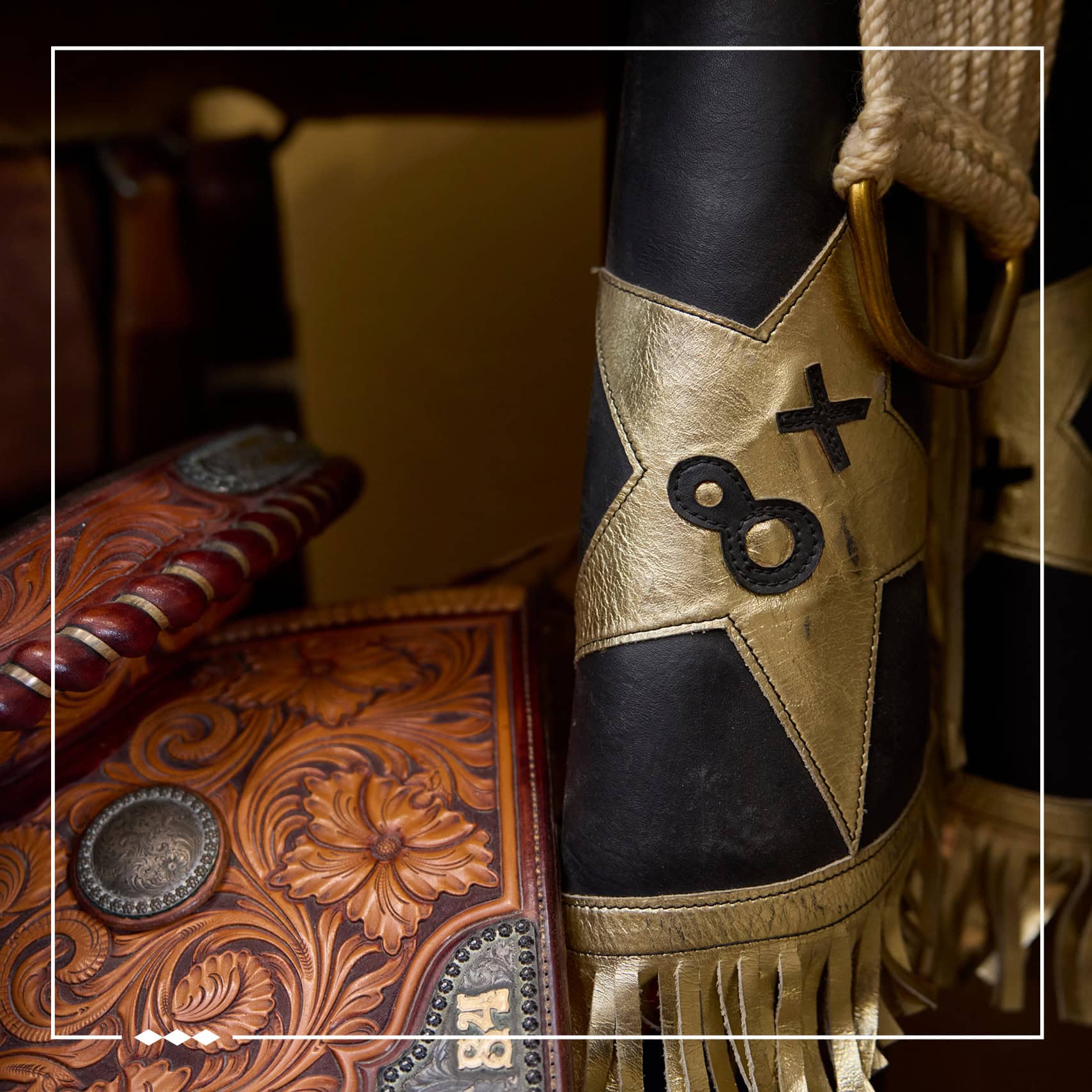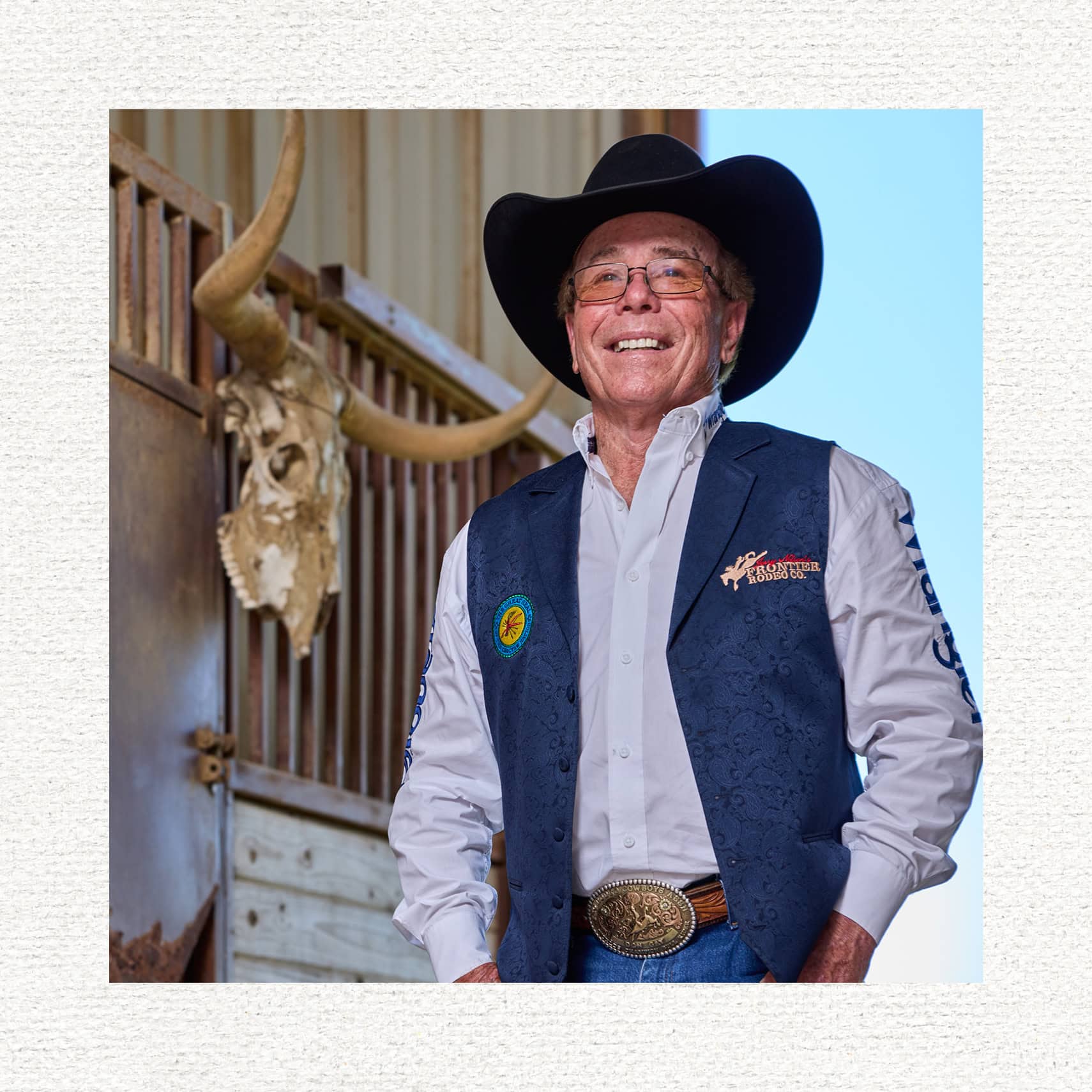Don Gay’s life has been nothing short of legendary in the world of professional rodeo. Born into a cowboy family in 1953, Don grew up surrounded by the grit, passion, and perseverance that define the rodeo lifestyle. As the son of renowned rodeo promoter and cowboy Neal Gay, Don was immersed in the culture of rodeo from a young age and was destined to carve out his own place in its storied history.
Raised in Mesquite, Texas, Don’s childhood was shaped by the Mesquite Championship Rodeo, founded by his father and 16-time world champion Jim Shoulders, whom Don refers to as the “Babe Ruth of Rodeo.”
“I had the world’s biggest dirt playground,” recalls Don.
The rodeo world became his home, classroom, and arena. From an early age, Don and his brothers worked tirelessly—feeding horses, cleaning barns, and handling livestock—all while absorbing the essence of the cowboy lifestyle. Despite financial hardships, Don remembers a happy childhood filled with purpose and ambition.
“My brothers and I didn’t ever know we were broke…We were living the life of a cowboy,” said Don.
As a young boy, Don watched rodeo greats perform and longed to be among them. By his early teens, he was riding steers, learning how to protect himself and stay on. Watching his role model, Jim Shoulders, win a record seven world championship titles in bull riding lit a fire in young Don. He didn’t set out to beat Shoulders’ record at first, though.
“When I was growing up, my dream was to be the world champion bull rider, and in my mind, that was forever,” he said.
Don’s father, a no-nonsense kind of guy, set high standards. Don was told that until he could consistently ride two specific bulls—one that turned left, the other right—he couldn’t enter competitions. It took him nearly an entire season, but he succeeded, earning the green light to pursue rodeo competition.
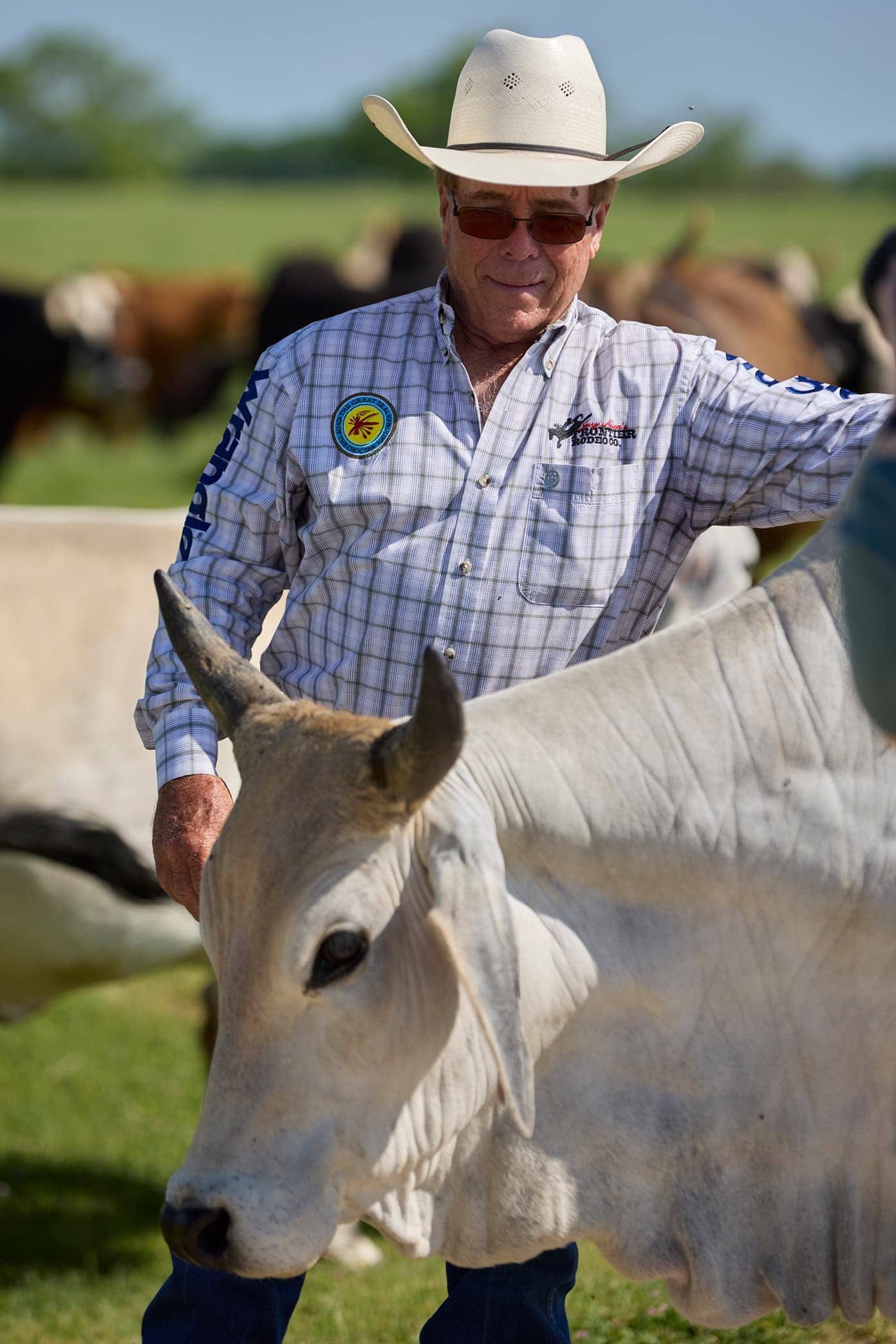
Don’s first official competition came in Mansfield, Texas, where he met his future wife. Although he drew the toughest bull for his debut, and was nearly thrown from the arena, he was hooked. He began entering local jackpots, winning modest prizes, and constantly training—all while still attending school and keeping his grades up to meet his father’s expectations.
Don remembers getting a D in algebra one six weeks in seventh grade, and his father made him repeat the entire year. To this day, Don claims it was one of the best things that could have happened because it gave him time to mature and get his grades up. He never got another D in school.
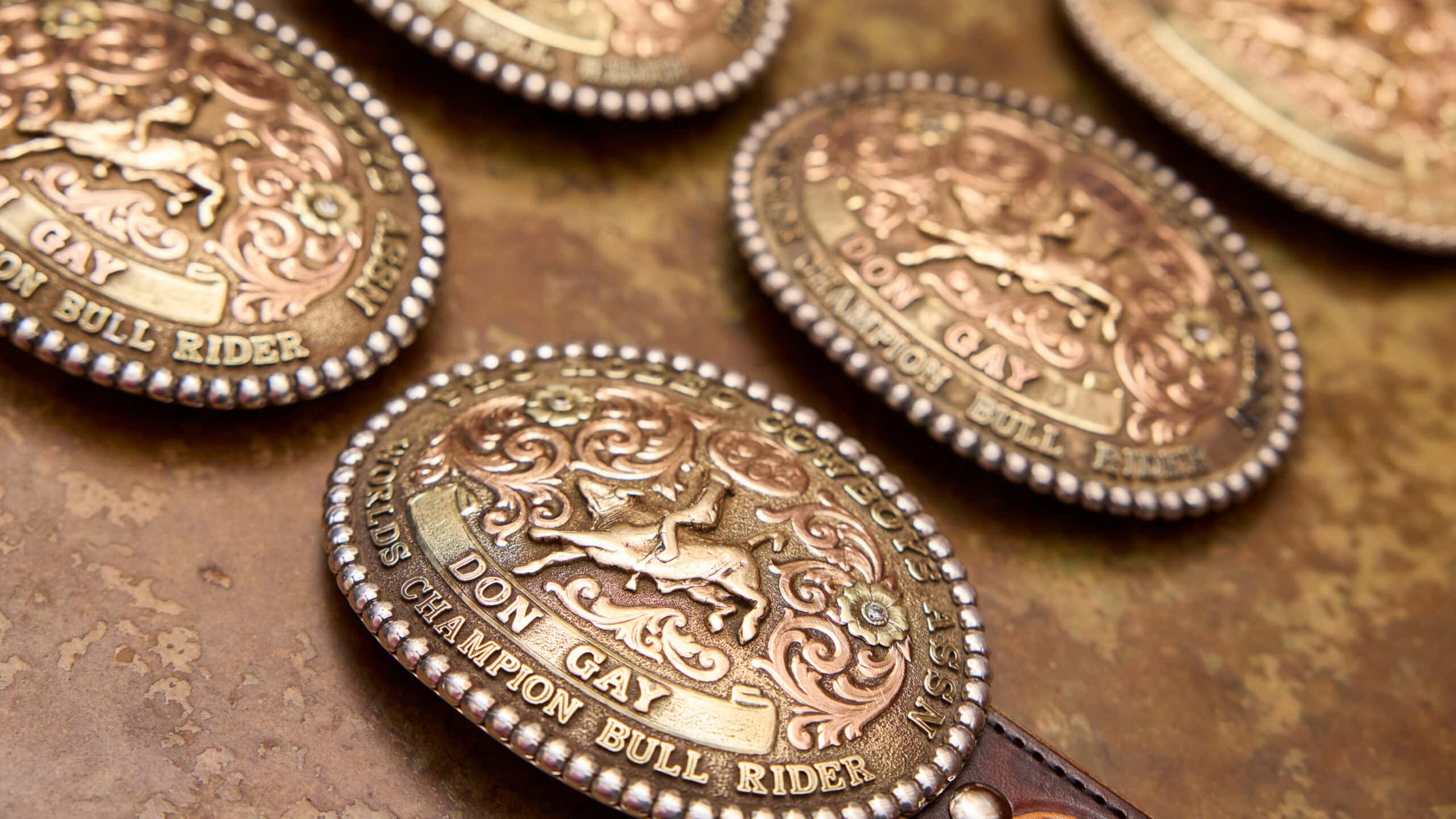
“Being a cowboy, I don’t ever take my uniform off. It’s a lifestyle,” said Don. “I didn’t want a real job. I was going to ride bulls for a living.”
“I was going to be the world champion bull rider, and all I had to do was get through school and give my daddy the diploma,” said Don.
By age 16, Don had made enough winnings to earn his Professional Rodeo Cowboys Association (PRCA) card in 1970. Despite being limited by school commitments, he found time to travel across states, sometimes making extremely long drives to ride for mere seconds before returning to class the next morning. The day he graduated from high school in 1972, Don handed his diploma to his father, who said, “If you get sick or if you get hurt, call me. If you get broke, get a job.” And that was the first day of Don’s career as a full-time rodeo cowboy.
In 1972, Don made his first appearance at the National Finals Rodeo (NFR), finishing third overall. In 1973, he narrowly missed his first world title, which only fueled his ambition. The following year, he won his first World Champion Bull Rider title. Over the next decade, he dominated the sport, securing a total of eight world championships—a record unmatched in bull riding history.
Despite numerous injuries and setbacks—including a career-threatening groin injury and a terrifying paralysis scare in Missouri—Don’s love for bull riding never wavered. Even after temporarily stepping away from the sport in the early 1980s, he returned in 1984 to claim his eighth and final world title.
His career was shaped not just by talent but also by mental discipline, resilience, and spiritual awakening. In his later years, Don embraced his Christian faith, citing a heartfelt conversation with his daughter as the moment that led him to rededicate his life to God. This spiritual transformation brought peace and a new purpose beyond competition.
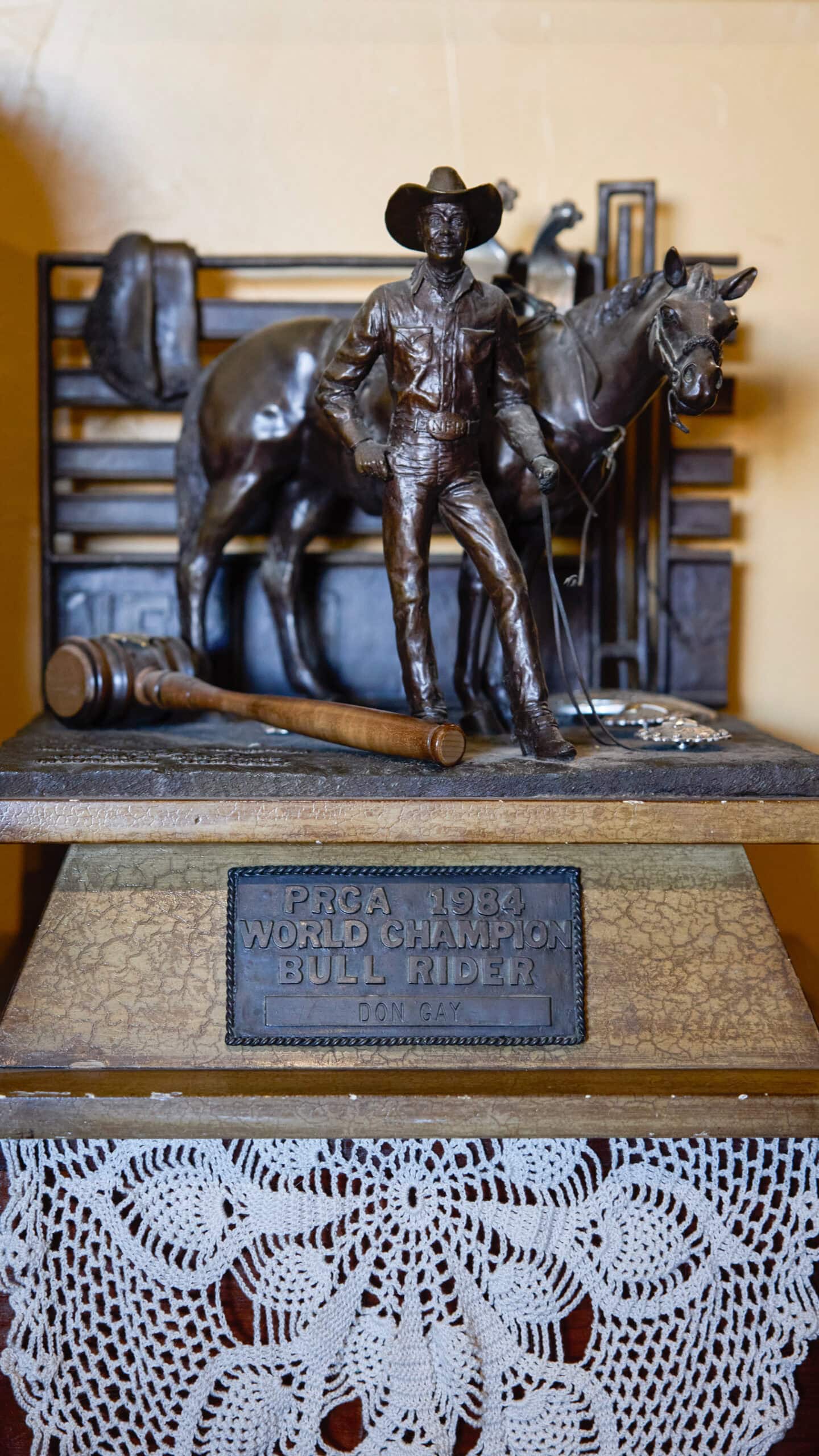
“We’re together, and we’re going to a better place. We’re going to make the place where we’re at a better place. We’re going to build it up, and anybody that’s getting left behind, we’re going to bring them in,” said Don.
Don also later discovered his Native American heritage—learning that his mother, Evelyn “Cookie” Gay, who passed away when Don was just two years old, was of Choctaw descent. This revelation deepened his connection to his roots and added another layer of pride to his identity as a cowboy, especially since Cookie was quite the cowgirl herself.
After retiring from bull riding, Don transitioned into broadcasting and rodeo production. He became a key figure in rodeo media, sharing his knowledge as a color commentator and working with Frontier Rodeo Company, a 10-time Stock Contractor of the Year. Through this role, Don continued to promote the sport he loved, participating in youth camps, educational events, and community outreach—always striving to keep rodeo’s heritage alive.
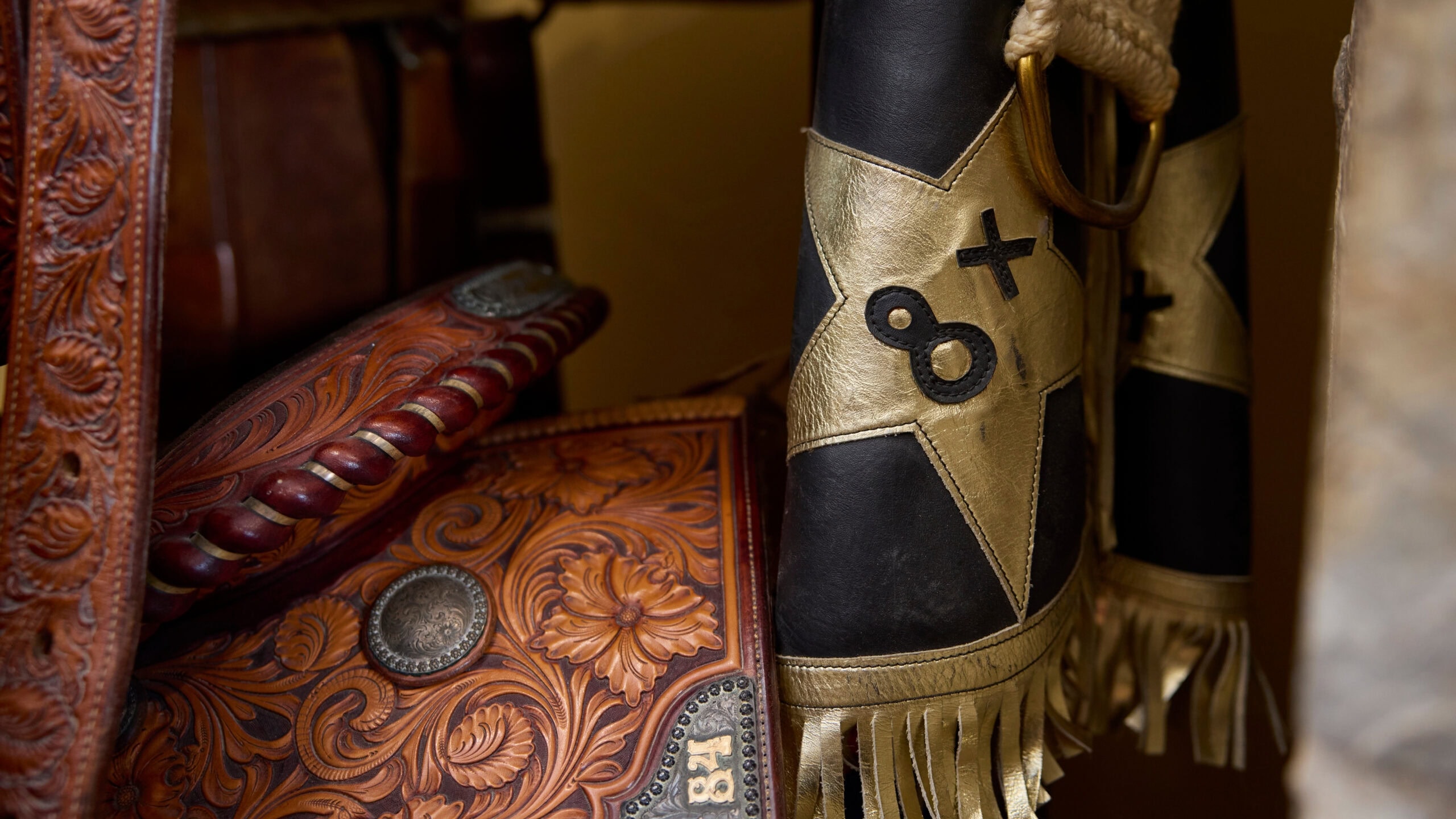
He also maintained a deep bond with the professional rodeo community. His close friendship with fellow bull rider Lane Frost and the pain of Lane’s tragic death in 1989 left a lasting impact. Don’s own paralysis scare in the ring later that year led to his final decision to step away from competition for good.
To Don Gay, rodeo is not a sport—it’s a calling and a family. Raised in the dust and lights of the Mesquite Rodeo, taught by tough love, grounded in faith, and shaped by legacy, Don became the embodiment of the American cowboy.
Even into his 70s, Don remains an ambassador for rodeo. His story is one of perseverance, humility, and passion—of a boy who never wanted to be anything else, and who became the best in the world doing exactly what he loved.
